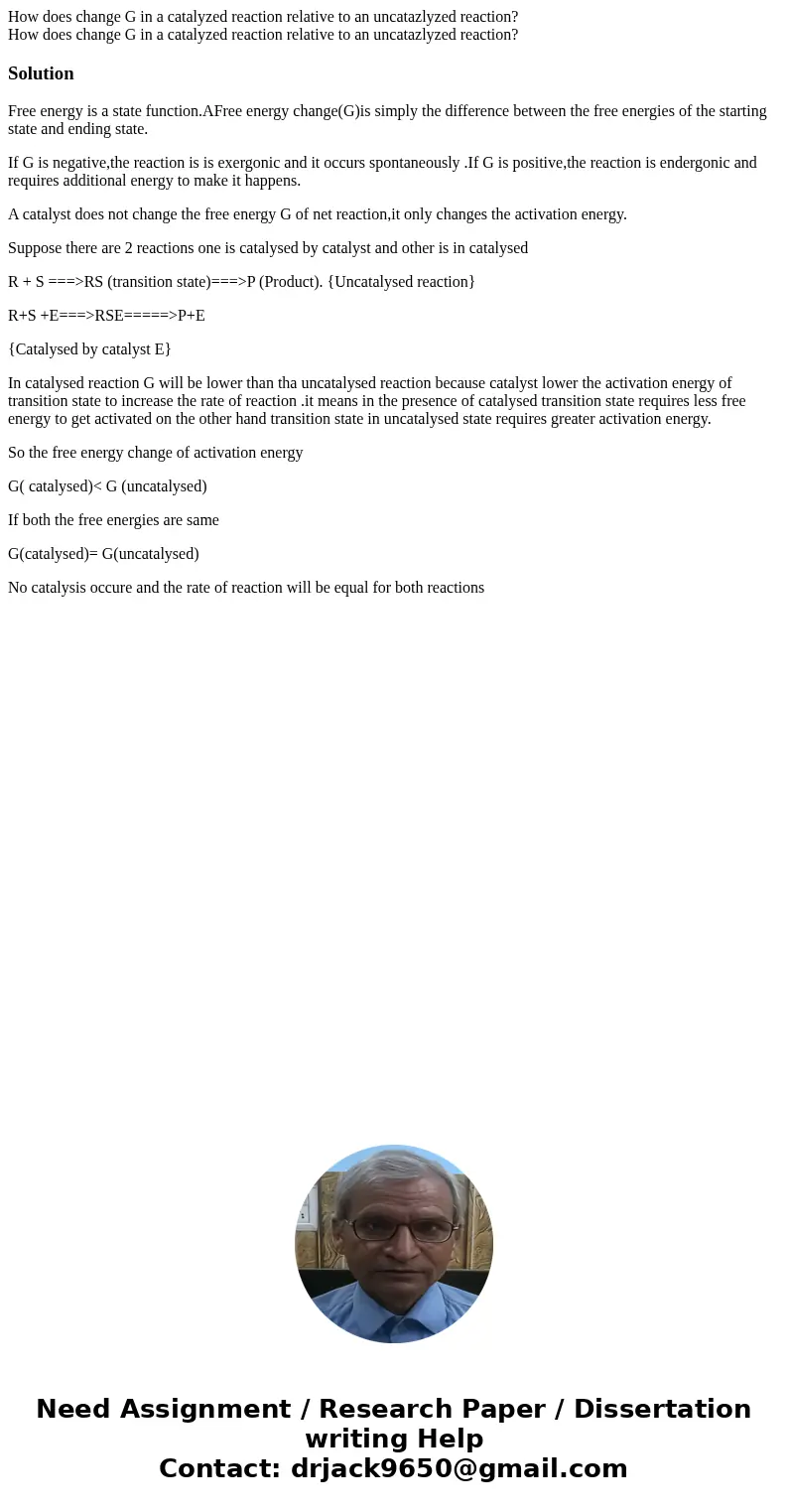How does change G in a catalyzed reaction relative to an unc
Solution
Free energy is a state function.AFree energy change(G)is simply the difference between the free energies of the starting state and ending state.
If G is negative,the reaction is is exergonic and it occurs spontaneously .If G is positive,the reaction is endergonic and requires additional energy to make it happens.
A catalyst does not change the free energy G of net reaction,it only changes the activation energy.
Suppose there are 2 reactions one is catalysed by catalyst and other is in catalysed
R + S ===>RS (transition state)===>P (Product). {Uncatalysed reaction}
R+S +E===>RSE=====>P+E
{Catalysed by catalyst E}
In catalysed reaction G will be lower than tha uncatalysed reaction because catalyst lower the activation energy of transition state to increase the rate of reaction .it means in the presence of catalysed transition state requires less free energy to get activated on the other hand transition state in uncatalysed state requires greater activation energy.
So the free energy change of activation energy
G( catalysed)< G (uncatalysed)
If both the free energies are same
G(catalysed)= G(uncatalysed)
No catalysis occure and the rate of reaction will be equal for both reactions

 Homework Sourse
Homework Sourse